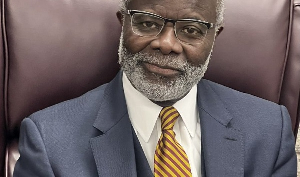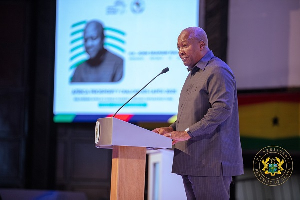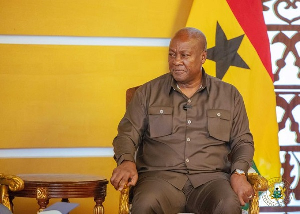Accra, Sept. 16, GNA – West Africa Network for Peace building (WANEP) in partnership with Crises Management Initiative (CMI) has launched a project on Gender-Based Violence (GBV) in Accra.
The initiative is aimed at harnessing the dynamics and socio-political impart of gender-based violence for sustainable peace processes in West Africa.
The Project dubbed: “Addressing GBV in Peace Processes in West Africa,” hopes to increase the capacity of local and regional mediators in West Africa to address GBV more effectively in peace mediation processes.
The joint project seeks to identify strength, gaps and shortcoming of existing initiatives and policies on GBV and the needs in combating the menace with regards to peace mediation processes.
It is also expected to offer technical direction and support to existing structures and processes of peace building and mediation in the sub-region.
Speaking at the launch on Thursday in Accra, Mr Emmanuel Bombande, Executive Director of WANEP said the challenges posed by the threat of violent and armed conflict in the sub-region is critical factor for sub-regional stability and economic development.
He noted that within the last two decades ECOWAS had struggled with excesses of conflicts which had sapped enormous energy and resources intended for economic development and sub-regional integration.
“Prolonged civil war in Liberia and Sierra Leone, military disturbances in Guinea Bissau and the armed rebellion in Cote d’Ivoire have wrought unmitigated suffering on the citizens of these countries, consisting a major set-back to economic and social development,” he said.
He added that the consequences for the society particularly were the violence women suffer, including rape, domestic violence and forced marriages.
Mr Bombande said the role and active participation of women in peace building was fundamental in contributing to national and regional capacities in peace building processes.
He said the voices of women who are vulnerable groups in conflict environments must be integrated to peace building efforts.
“It is important that women are not categorised as victims of violent conflicts which only serve to reinforce the stereotypes that undermine their professional role,” he said.
He called on the authorities to ensure that women fully participate in peace building processes and the overall advancement of society.
Mrs Tuija Talvitie, Executive Director of CMI said women constituted half of the world population, hence the need for them to contribute towards the building of inclusive, resilient and peaceful societies that can manage shocks and conflict.
He said CMI had discovered the important roles women play as agents’ of social and political change through its active participation in peace processes since the last 10 years.
“Yet, more often, across the globe, we witness how the potential of women is not embraced or even allowed; how the rights of women are abused and how violence against women prevails,” she said.
She said the body is committed in addressing the gender-specific dimensions of conflicts and peace building and concentrate on the impact and implications of GBV in mediation and peace processes.
CMI is a non-profit organisation established in 2000 to contribute to conflict resolution through mediation, mediation support, dialogue and confidence building processes.
It seeks to consolidate and sustain peace processes through supporting state capacity and participatory planning and prioritisation process.
CMI works globally through partnerships in Africa, Middle East, Black Sea region and South East Asia and Central Asia.
Regional News of Friday, 16 September 2011
Source: GNA
















